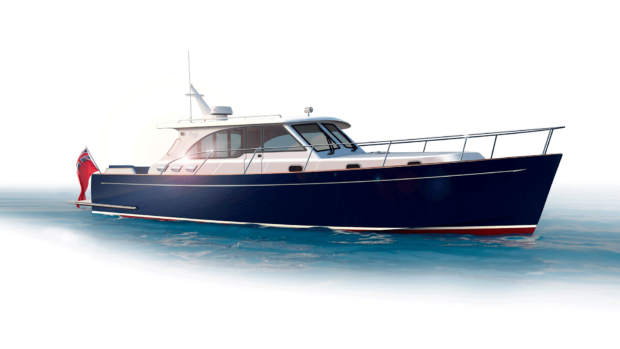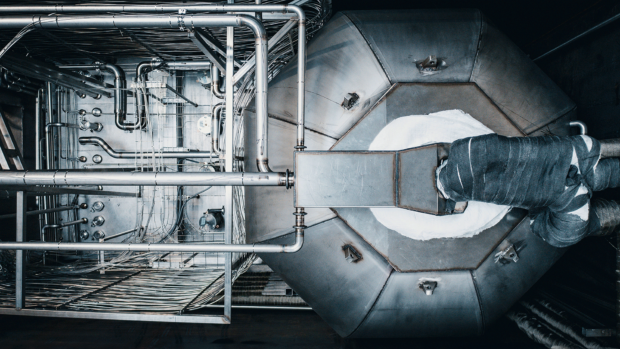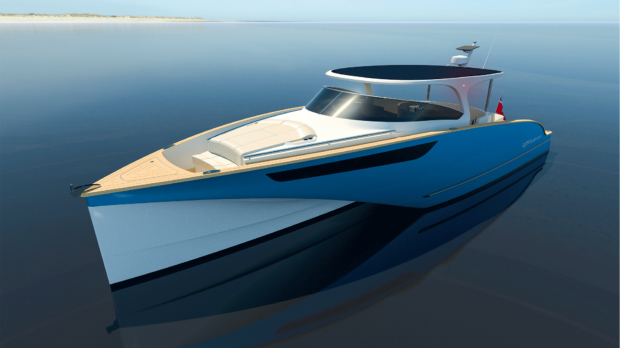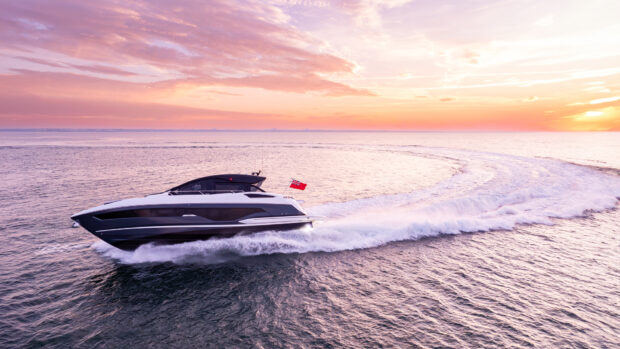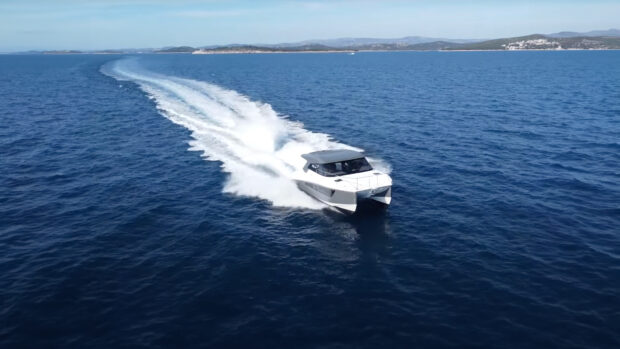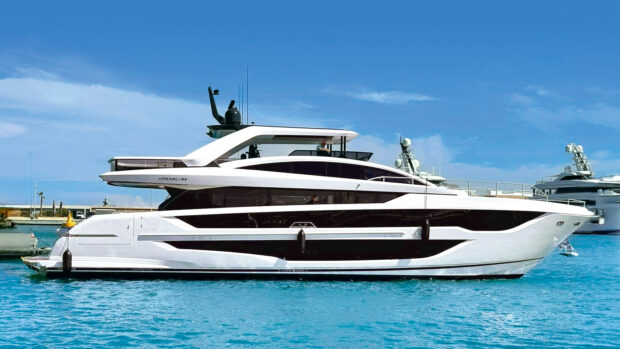The owner of the Orkney Longliner 16, who drowned after falling overboard in cold water, was not wearing a lifejacket. He also had no means to get back on board
The Marine Casualty Investigation Board is asking Ireland’s Minister of Transport to review the effectiveness of lifejacket enforcement and consider ways in which inspections for the mandatory wearing of lifejackets can be increased following the death of a boater.
The owner of the Orkney Longliner 16, Nuala Bríd drowned after he fell overboard into cold water at Bruckless Pier, a tidal inlet on the north-eastern corner of Donegal Bay in Ireland. He was alone at the time.
The man, who was in his late 60s, was not wearing a lifejacket, had no means to call the emergency services, had not shared his plans with a shore contact and had no means of getting back on board the boat.
The Orkney Longliner 16 was an older vessel which predated the introduction of modern design requirements to minimise the risk of falling overboard and to facilitate reboarding. This was introduced in 2013 by the European Union (EU) Directive for Recreational Craft.

Aft of Nuala Bríd, with space available for the potential retrofitting of a reboarding ladder or an emergency overboard ladder. Credit: Marine Casualty Investigation Branch
The Marine Casualty Investigation Branch concluded that the man had motored the 50m from the shore to Nuala Bríd in his tender. He had started the boat’s outboard engine and fell into the water before he had untied the vessel from its mooring buoy.
It is thought he had been using a boat hook to retrieve the bowline securing the boat, had fallen overboard, and tried to use his tender to help him climb back on board, although investigators state that “it has not been possible to determine exactly how the Casualty fell overboard.”
At the time, the weather forecast was a south to southwesterly Force 4-5, occasionally Force 6 with gusts of up to 35 knots. A Small Craft Warning was also in effect.
The Orkney Longliner 16 is a Category C vessel. According to the EU’s Directive on Recreational Craft and Personal Watercraft, this means it is intended for use within 10 miles from land in winds of up to and including Force 6 and, significant wave heights of up to and including 2 m.

Nuala Bríd after being removed from the water on the evening of the accident. Credit: An Garda Síochána
The man was found by another boater, who spotted his parked van blocking the slipway and the capsized tender, largely submerged and upright in the water.
The boater, once he had donned his lifejacket, rowed out to Nuala Bríd where he noticed the boat’s outboard running in idle; the boat hook was loose on deck and there was a tangle of line in the water between the Orkney Longliner 16 and the tender.
He pulled on the line and discovered the owner of Nuala Bríd.

The interior of Nuala Bríd, showing the forward cabin, foredeck compartment, and steering console. Credit: Marine Casualty Investigation Branch
The alarm was raised and the boater returned to Bruckless Pier in Nuala Bríd to take onboard another person who had come to the pier to help.
Once the owner of Nuala Bríd was recovered from the water, CPR was attempted in the motor boat. The sea state was so rough that bringing the boat alongside the pier was difficult. They were met by the emergency services.
The accident happened on 28 September 2023.
Officers with the Marine Casualty Investigation Branch state that the owner of Nuala Bríd had no formal training in the operation of a powered boat, but had been on and around boats all his life. He could swim and had owned the Orkney Longliner 16 since 2011.

The tender used to access Nuala Bríd. Note: not shown is the battery-operated engine that was secured to the transom but was lost overboard in this incident. Credit: Marine Casualty Investigation Board
He had also been fitted with a spinal cord stimulator for pain management following a serious back injury and had been advised by doctors to avoid using the device when doing physical activities; he typically switched off the device when boating.
It is not known if the medical device contributed to the accident.
His family said the man was usually diligent about wearing a lifejacket while afloat.
The Marine Casualty Investigation Branch said the owner of Nuala Bríd died due to a combination of factors:
- A fall overboard into cold water.
- Operating alone, in challenging weather conditions.
- Lack of formal training and planning of the voyage.
- Inadequate safety and emergency equipment, being the omission of: a PFD; a means of raising the alarm, either in-person by VHF radio, PLB (Personal Locator Beacon) or mobile phone in waterproof pouch or via a shore contact; and, a means of unaided reboarding of the vessel from the water
Amongst its recommendations, the Marine Casualty Investigation Branch is asking the Minister of Transport to:
- Include further guidance in the Code of Practice for the Safe Operation of Recreational Craft on the importance of ensuring the fitting and use of a boarding ladder and/or overboard ladder on recreational craft, especially for boats that pre-date the implementation of the European Union Directive on Recreational Craft.
- Review the effectiveness of the lifejacket enforcement regime and consider ways in which inspections for the mandatory wearing of lifejackets can be increased.
- Consider the introduction of basic safety training for operators of marine leisure vessels. Such basic training could cover the safety features set out in Marine Notice No. 52 of 2023, including the use of lifejackets, sea survival techniques, voyage planning, use of engines and actions to take in emergency situations.
The Marine Casualty Investigation Branch also had recommendations for Irish Sailing and Water Safety Ireland.
It said Irish Sailing should consider the introduction of specific guidance in the National Powerboat Training Scheme dealing with hazards relating to the solo operation of powered boats, including what to do if you fall overboard, and the difficulties of reboarding a vessel unaided.
Water Safety Ireland is asked to investigate if regulated training would improve the safety of recreational sailors, and consider a campaign on the benefits of fitting and using a boarding ladder/overboard ladder, especially on boats that pre-date the implementation of the European Union Directive on Recreational Craft.
The full Marine Casualty Investigation Branch report can be read here.

‘We had no real plan for how to get back onto our boat’ – lessons from a man overboard

Man overboard procedure: How to safely recover an MOB casualty

Seadogz collision fatality: MAIB publish interim report and findings

Kill cords: Everything boatowners need to know
In this feature we flesh out the legal requirements, dangers and debates regarding kill cords and how they relate to
 Want more news stories like Lifejacket may have saved boater after fall from motor boat?
Want more news stories like Lifejacket may have saved boater after fall from motor boat?
Motor Boat & Yachting is the world’s leading magazine for Motoryacht enthusiasts. Every month we have inspirational adventures and practical features to help you realise your sailing dreams, as well as tests and news of all the latest motorboats.
Plus you’ll get our quarterly Custom Yachting supplement where we share the last on offer in the superyacht world and at the luxury end of the market.
Build your knowledge with a subscription delivered to your door. See our latest offers and save at least 30% off the cover price.



 Want more news stories like Lifejacket may have saved boater after fall from motor boat?
Want more news stories like Lifejacket may have saved boater after fall from motor boat?